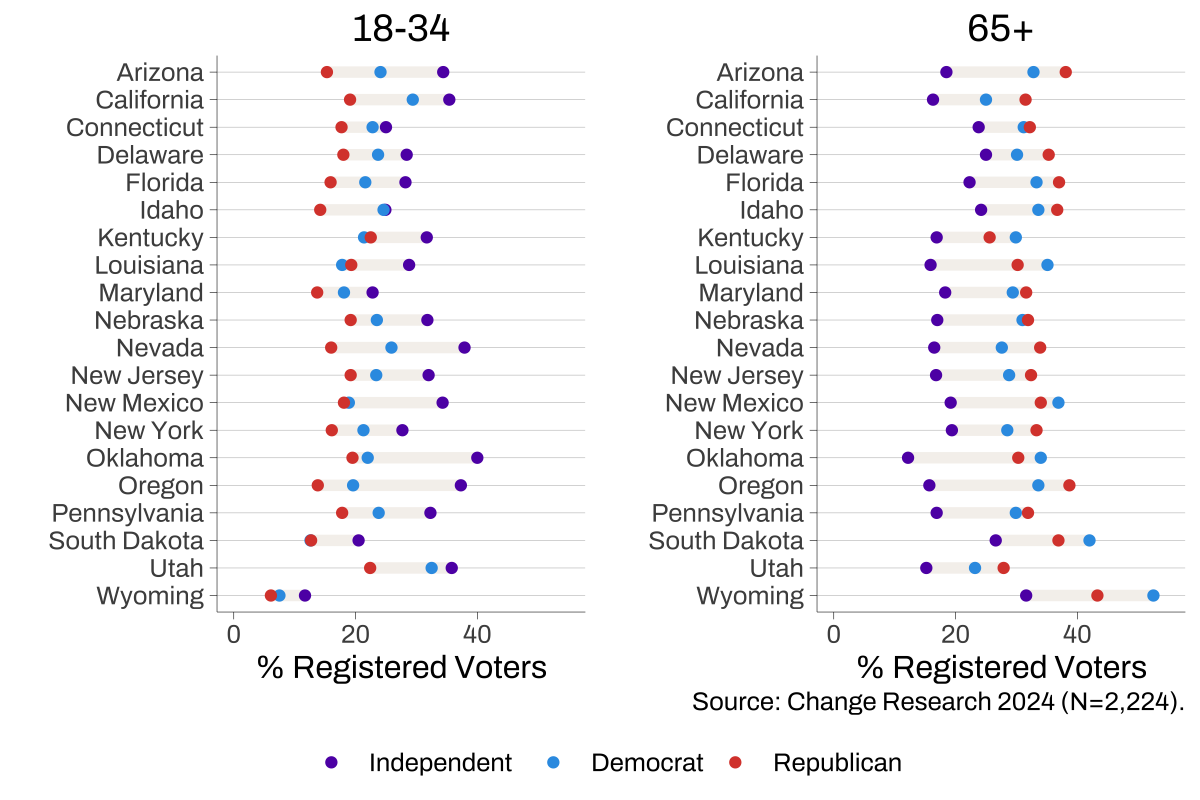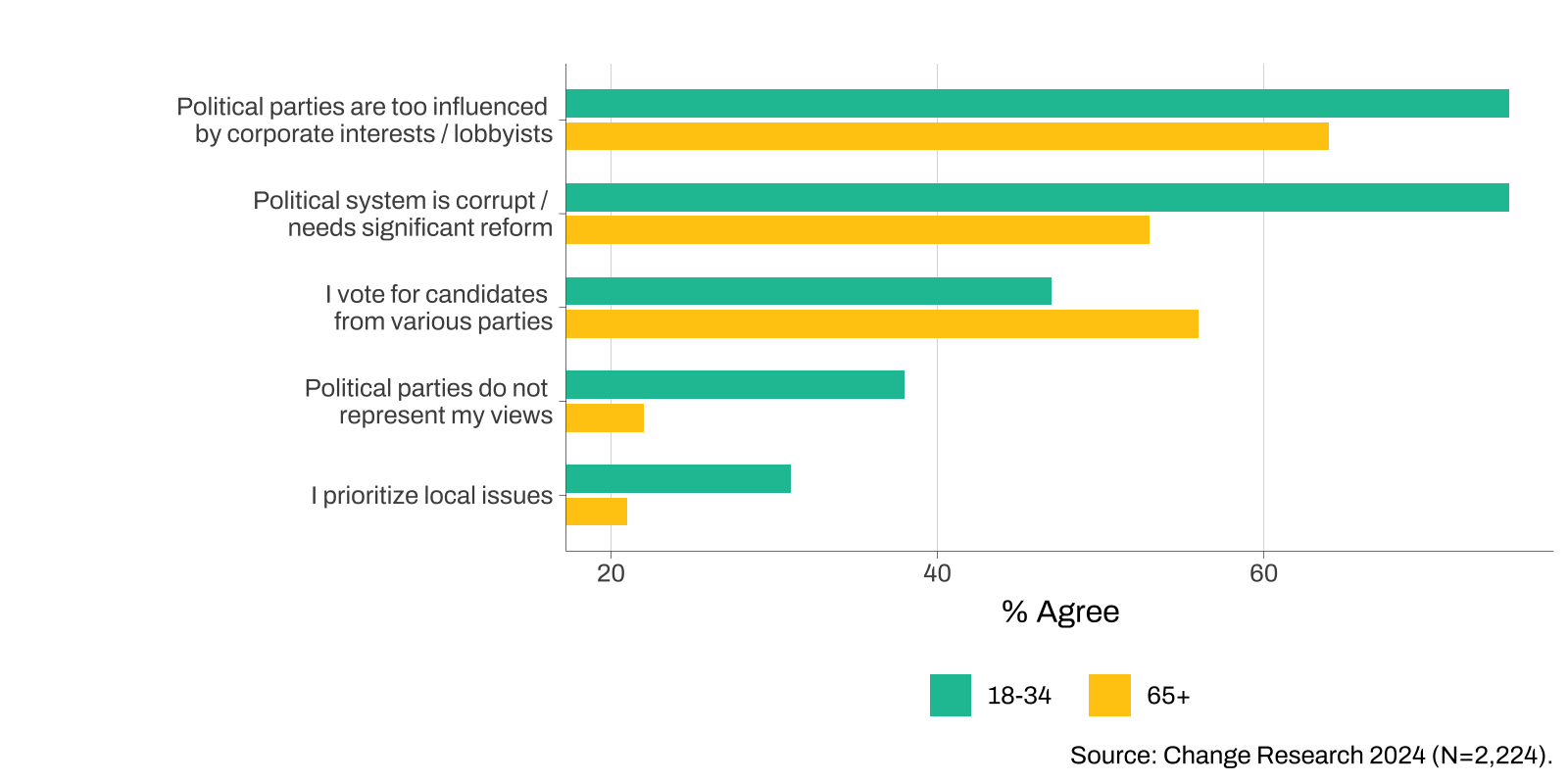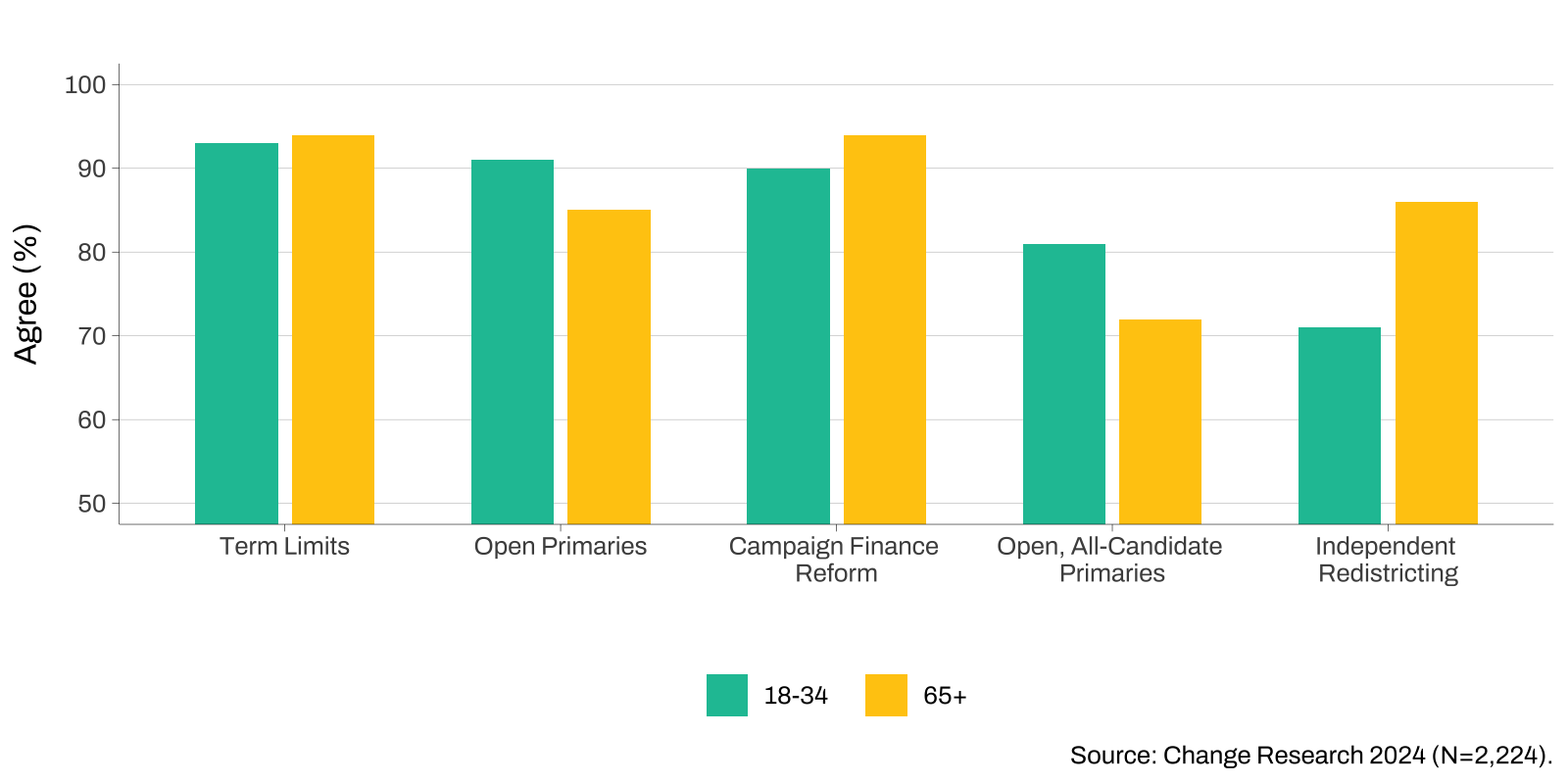The US Political System Is Failing Young Voters the Most

Photo by Getty Images on Unsplash
In 2024, Gallup found for the first time in the history of its polling that more than half of the electorate identified as independent. The biggest driver of this political shift are young voters, who enter voting age more independent than the generation before them.
Research consistently finds that the youngest generations of voters are much more likely than older generations to identify and/or register independent of any political party. This includes recent findings from Change Research that looked at party registration in 20 states.

In many states, the gap among young voters between party registration and independent registration is huge, and notably, the largest gaps are in states in which independent voters are denied access to taxpayer-funded primary elections.
These states include Nevada, New Jersey, New Mexico, Oklahoma and Oregon. Young voters in the last two states are more likely to be registered independent by a substantial margin.
According to Unite America, young independent voters cannot participate in congressional primaries in 15 states. Yet, most US House seats are so safe for one party or the other that general elections are nowhere near as consequential as the primaries.
Up to 90% of winners are picked in low-turnout primary elections, creating an incentive to appease to a political minority rather than the electorate at-large. It also plays a significant role in the continued decline in confidence in government and political institutions.
"If young voters are disproportionately unable to vote in primary elections that effectively determine the winner, this may lead to negative downstream effects on their general political engagement, trust in political institutions, and overall orientation toward politics," Unite America writes.
The Current System Is Most Damaging to Young Independents
This effect on young voters can also be seen in their motivations for being independent. Compared to older independents, they are much more likely to believe the parties are too influenced by monied interests and that the political system is corrupt and in need of reform.

Young independents are also much more likely to agree with the statement that "political parties do not represent my views." What motivation do they have then to trust in a system that was manufactured at every level to be controlled by two parties that don't represent them?
Especially, when many young independents say they are independent because they don't believe that one side is always right and the other side is always wrong. Instead, they hold diverse viewpoints on a variety of issues.
One young independent voter told Change Research: "Each party has principles that I agree and disagree with.”
But again, the current system does not incentivize diverse perspectives. Nearly every state conducts partisan primaries that divide voters between a Republican ballot and a Democratic ballot, and voters can only choose from candidates of a single party.
The two major parties make the electoral rules. They decide who gets to vote and when. They control the primaries that decide most electoral outcomes. In some states, you cannot even work as a polling official unless you are a party member.
Even in open partisan primary states that allow independent participation, voters are told from the start they have to pick a side when most independent voters want the freedom to pick the candidate that best represents their views, regardless of party.
But by the time many of them cast a ballot, that decision was already made for them by a marginal percentage of the voting population, giving party bosses and special interest groups that can mobilize primary voters the most control over electoral outcomes.
It is not inviting, nor does it inspire confidence and trust among voters who were already skeptical of the US electoral system and its political institutions when they came of age to vote.
It All Starts with the Primaries
It is not lost on independent voters what exclusion from primary elections means for them and their representation. Change Research found that large majorities of independent voters, regardless of age, believed primary exclusion was a violation of their voting rights.
This included 80% of independent voters between the ages of 18 and 34. One voter surveyed said, "Everyone should have a right to have a say."
Independent voters surveyed also supported open primary reform. According to the data, about 9-in-10 young independent voters supported open partisan primary reform and about 8-in-10 supported open, all candidate nonpartisan primaries.
Although less older independents were sold on these reforms, support was still at a healthy majority.

About 24 million independent voters are denied access to taxpayer-funded primary elections each election cycle. Half of these voters are between 18 and 34. Unless there is meaningful systemic reform, these voters will never feel like their voice matters.
Because the current system tells them it doesn't. They are told to suck it up and choose between two candidates that the increasingly divided and unpopular parties chose for them
Most independent voters believe "every citizen should have the right to vote in all elections." The path to make this happen resides with the people to build movements for change because the parties in power will do whatever it takes to preserve the status quo.
 Shawn Griffiths
Shawn Griffiths







